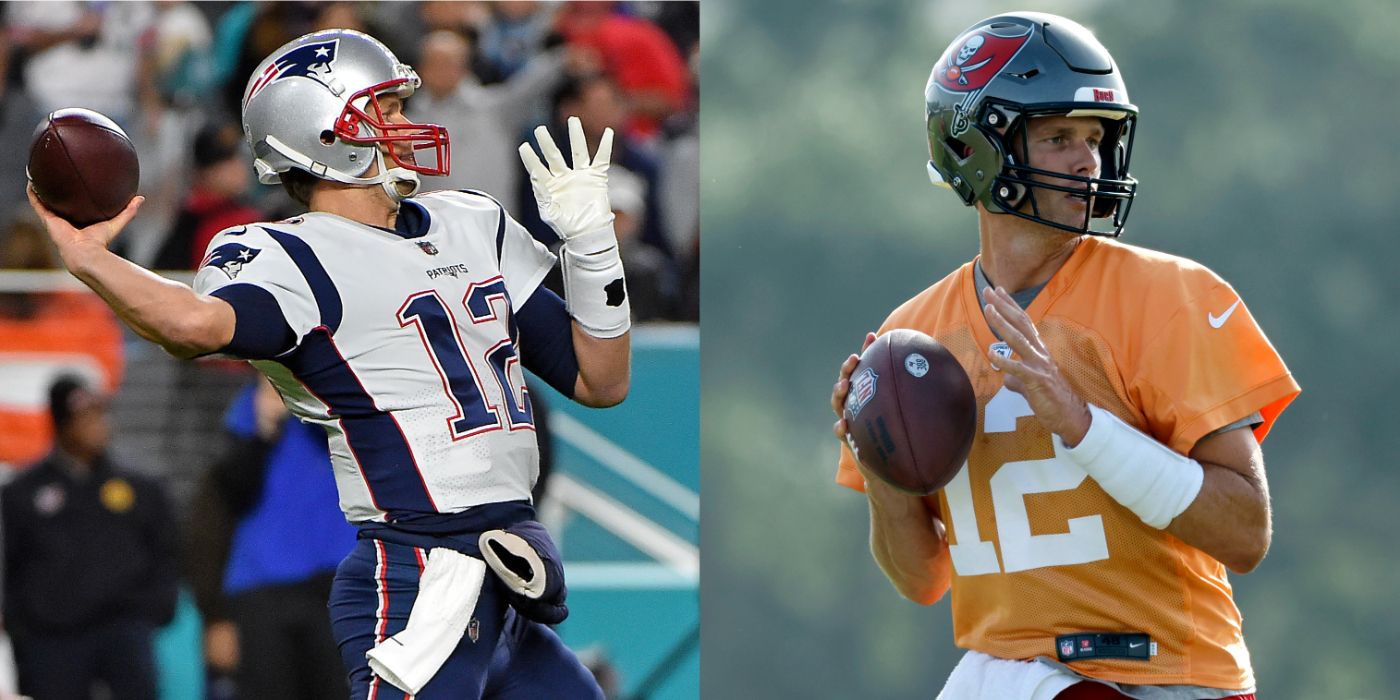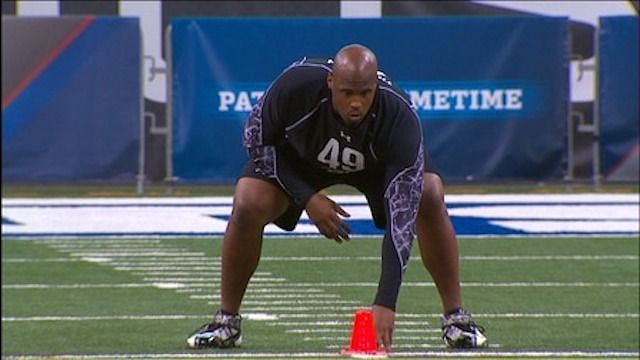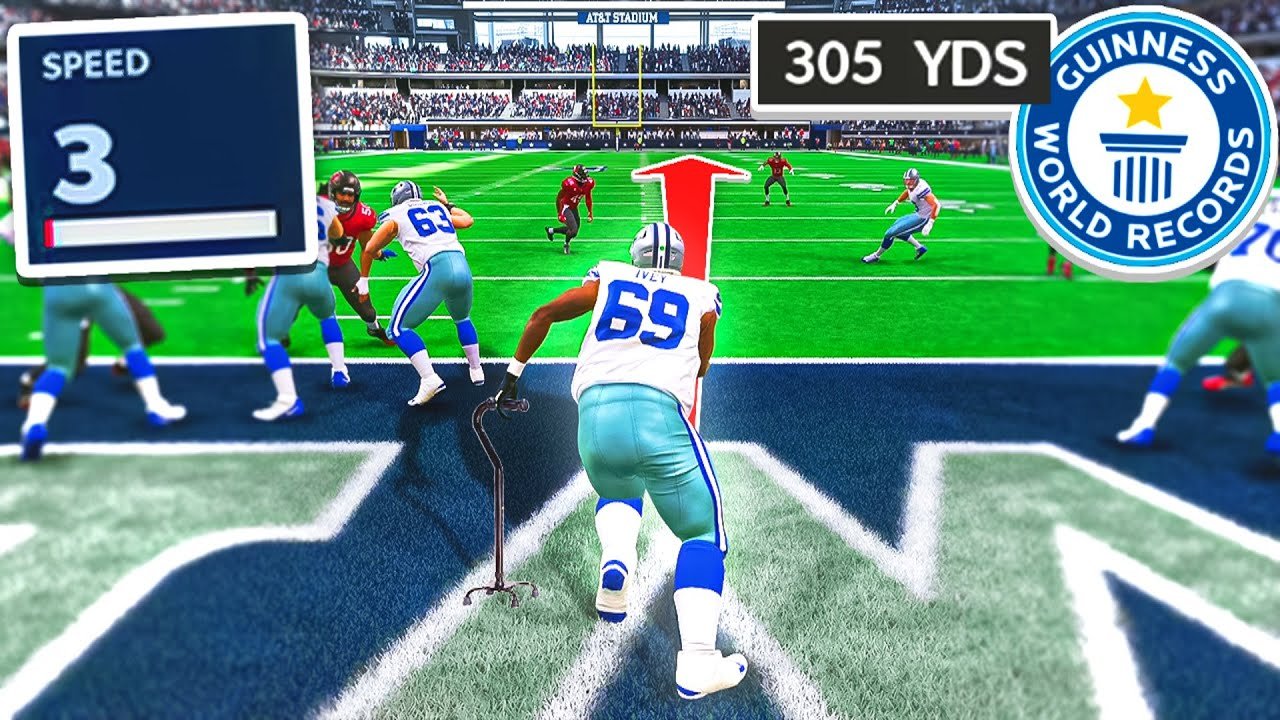Speed is a key factor in NFL success. But not all players are fast.
In the world of the NFL, we often praise the fastest players. Their speed can turn games around. But what about the slowest players? These athletes may not be quick, but they still play a vital role. Their skills lie in other areas, like strength, strategy, or experience.
By understanding their impact, we see that speed isn’t everything. Let’s explore how these slower players contribute to the game. Their unique talents and determination help their teams in many ways. So, who are these players? And what makes them stand out despite their lack of speed?
Defining ‘slowest Player’
Defining the ‘Slowest Player’ in the NFL is not as straightforward as it seems. Speed is crucial in football, but not every player relies on it. Some positions require different strengths, making the concept of ‘slow’ relative.
Metrics Used
To determine the slowest player, we use several metrics. The 40-yard dash is a common measure. It shows how fast a player can run short distances. Game speed is also important. It considers how fast a player moves during real play.
Comparative Analysis
Comparing players across positions helps to understand who is slowest. Offensive linemen are usually slower. They need strength more than speed. Wide receivers and running backs are faster. They rely on speed to evade defenders.
We also compare within positions. A slow wide receiver might still be faster than a fast offensive lineman. This shows the importance of context in defining ‘slowest player’.

Credit: www.thesportster.com
Notable Slowest Players
When we think of NFL players, speed and agility often come to mind. But not every player relies on speed to make an impact. Some of the slowest players in the NFL have still managed to leave their mark on the game. These players have shown that strength, skill, and strategy can sometimes outweigh speed.
Famous Names
One notable slow player is Tom Brady. Despite his lack of speed, Brady is considered one of the greatest quarterbacks. He uses his intelligence and accuracy to outplay faster opponents. Another player known for his slower pace is Peyton Manning. Like Brady, Manning relied on his mental game and precise throws. These quarterbacks prove that speed isn’t everything.
Career Highlights
Tom Brady has seven Super Bowl rings. His career highlights include countless records and awards. His slow speed never stopped him from becoming a legend. Peyton Manning also boasts an impressive career. He has two Super Bowl victories and numerous MVP awards. His leadership and vision on the field made him a standout player.
These slow players have shown that success in the NFL isn’t just about speed. Their achievements highlight the importance of other qualities in a player. Intelligence, skill, and experience can often make a bigger difference.
Surprising Stats
The NFL is known for its fast-paced action and incredible athletes. Yet, some players stand out for their slower speeds. These slowest players still make significant contributions to their teams. Let’s dive into some surprising stats that highlight their unique strengths.
Speed Records
Many fans focus on speed records in the NFL. Surprisingly, some of the slowest players have set records in other areas. For example, some linemen have incredible bench press records. Their strength compensates for their lack of speed.
| Player | Speed (40-yard dash) | Bench Press Reps |
|---|---|---|
| Player A | 5.4 seconds | 35 |
| Player B | 5.6 seconds | 40 |
Performance Metrics
Speed is not the only metric that matters in the NFL. Performance metrics often highlight other strengths. Slow players may excel in areas like blocking or tackling. These skills are crucial for team success.
- Blocking: Effective blockers can protect the quarterback.
- Tackling: Strong tacklers can prevent big plays.
- Strength: Powerful players can control the line of scrimmage.
Many slow players have long careers. Their unique skills make them valuable assets. Teams appreciate their contributions, even if they lack speed.
Impact On The Game
The NFL is known for its fast-paced action and swift players. But what happens when a player isn’t as fast as the rest? The impact on the game can be surprising and significant. Slow players bring unique challenges and opportunities. They can affect team dynamics and game strategy in unexpected ways.
Team Dynamics
A slower player can change the team’s chemistry. Teammates might need to adjust their play style. This can lead to stronger teamwork and better communication. It’s not just about speed but how well players work together. Slower players can contribute in other ways, like blocking or making strategic plays.
Coaches might use a slower player to mentor younger teammates. Experience and knowledge can be more valuable than speed. A slow player often has a different perspective, adding depth to the team’s approach.
Game Strategy
Game strategy shifts with a slower player on the field. Teams might focus more on short, precise plays. Long passes and runs may not be as effective. This can confuse opponents expecting fast-paced action.
Coaches can use slower players in specific roles. For example, they might excel in defensive positions. Slower players can read the game better and anticipate moves. This can lead to more effective and strategic gameplay.
Having a slower player can also create new opportunities. Opponents might underestimate their impact. This can lead to surprise plays and unexpected wins. The key is to play to the strengths of every team member.
Training And Improvement
Improvement is possible for every NFL player, even the slowest ones. Effective training and coaching can enhance their speed and overall performance. Below, we explore the workout regimens and coaching techniques that contribute to their progress.
Workout Regimens
A tailored workout regimen can significantly impact a player’s speed. Strength training is vital. Building muscle mass in the legs and core enhances quick movements. Plyometrics are also important. These exercises improve explosive power and agility.
Endurance training should not be overlooked. It allows players to maintain their speed throughout the game. Interval training can help with this. Alternating between high and low-intensity workouts boosts stamina.
Coaching Techniques
Coaching plays a crucial role in a player’s development. Personalized coaching focuses on individual weaknesses. A coach can identify specific areas to improve. They can design drills that target these areas.
Feedback is essential. Regular performance reviews help players understand their progress. Coaches provide constructive criticism and encouragement. This motivates players to push harder and improve.
Film study is another key technique. Watching game footage helps players see their mistakes. They can learn from these and adjust their techniques. Analyzing opponents also offers insights. Players can understand the competition and adapt their strategies.

Credit: www.sportskeeda.com
Fan Perception
In the world of the NFL, every player gets scrutinized. Fans have strong opinions about who stands out and who doesn’t. The slowest player in the NFL often attracts a lot of attention. This player becomes a topic of discussion among fans and media alike. Let’s explore how fans perceive the slowest player.
Media Coverage
The media often highlights the slowest player. They analyze game footage and stats. Sports shows and news articles frequently mention this player. The media sometimes exaggerates their lack of speed. This can shape how fans view them. It can make the player seem worse than they are.
Public Opinion
Fans have mixed feelings about the slowest player. Some fans defend them. They believe speed isn’t everything. Other fans criticize them. They think the player slows the team down. Public opinion can be harsh. Social media amplifies these views. The slowest player often sees both support and criticism online. Fans love to debate their role on the team.
Frequently Asked Questions
Who Is The Slowest Player In The Nfl?
The slowest player in the NFL is typically identified through 40-yard dash times. Linemen often have the slowest times.
How Are Nfl Players’ Speeds Measured?
NFL players’ speeds are measured using the 40-yard dash, a standard test at the NFL Combine.
Does Speed Matter For All Nfl Positions?
Speed is crucial for skill positions like wide receivers. However, linemen rely more on strength and technique.
Can Slow Players Still Succeed In The Nfl?
Yes, slow players can succeed if they excel in other skills like blocking, tackling, or strategic play.
Conclusion
The NFL is full of fast and slow players. The slowest player still shows great effort and heart. Speed isn’t everything in football. Skills, strategy, and teamwork matter too. Every player brings unique strengths. Fans admire dedication and hard work.
Celebrate all players, fast or slow. Their passion makes the game exciting. Football remains a sport of diverse talents. Embrace the variety and enjoy the game.


